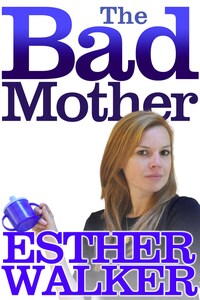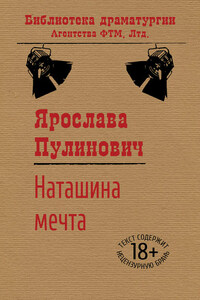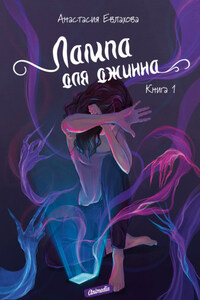The Friday Project
An imprint of HarperCollinsPublishers
1 London Bridge Street
London SE1 9GF
www.harpercollins.co.uk
This edition published by The Friday Project 2015
Copyright © Esther Walker
Esther Walker asserts the moral right to be identified as the author of this work.
A catalogue record for this book is available from the British Library.
All rights reserved under International Copyright Conventions. By payment of the required fees, you have been granted the non-exclusive, non-transferable right to access and read the text of this e-book on-screen. No part of this text may be reproduced, transmitted, down-loaded, decompiled, reverse engineered, or stored in or introduced into any information storage and retrieval system, in any form or by any means, whether electronic or mechanical, now known or hereinafter invented, without the express written permission of HarperCollins.
Ebook Edition © January 2015 ISBN: 9780007524747
Version: 2014-12-11
Of course I’m not a bad mother. Neither are you. I’d go so far as to say that there is no such thing as a bad mother. Sure, there is lazy, neglectful, idiotic and wrong parenting, but that doesn’t make you a bad mother. If you psychologically torture, beat or starve your children, that makes you a criminal – being a bad mother doesn’t really come into it.
But it has become fashionable recently to put a hand to your forehead and declare, ‘Oh God, I am such a bad mother.’
I never say this. I do not think I am a ‘bad’ mother, or really a ‘good’ mother. I try not to think about it in those quantifiable terms because it would probably send me crazy. I am a mother to my children and that is that. Sometimes I exercise good parenting and sometimes I exercise poor parenting, in the same way that sometimes my house is clean and sometimes it is a horrible dump, sometimes I do a really good piece of work and sometimes I file a load of old shit and hope my editor doesn’t notice.
You need to know more about me.
When I was eight, my little sister was born. There were no sisters in between me and her. There were two sisters above me, then nothing for a long time, and then a baby.
My mother was forty-nine. I didn’t have any sense at the time of what that meant, beyond the fact that everyone made a huge deal out of it, but knowing what I know now, it seems a perfectly insane and demented thing to do – to have a baby when you are nearly fifty.
We were fed and clothed and looked after in our house, but it was unstructured. There was no such thing as ‘bath time’. Once in a while, if we felt like it, we had a bath. We went to bed at some point, dressed in one of an assortment of shared nighties. My mother cut our hair with the kitchen scissors. Cats wandered about. We poked around in the large, tangled garden outside, swung on the old metal swing, played with the dressing-up box, watched telly, read Enid Blyton books. We went to school but there were no extra-curricular activities – except for next-eldest sister, who had piano lessons because she was terrific at the piano. (I was given piano lessons but was allowed to give up after I very nearly flunked my Grade 2.)
So when my sister was born I was eight, next-eldest sister was twelve and eldest sister was fifteen. It was, even I realised at the time, extremely hard and tiring for my mother. She was stressed, exhausted, irritable. And we – especially I – were not particularly helpful with the baby. It is just not true that eight-year-olds make terrific surrogate parents. They might do for a few minutes but then they wander off, bored, in search of their own lives, leaving the baby to lick matches, fall down stairs. I quickly saw that if I was not helping – and I did not want to help – I was a hindrance. I volunteered to take myself to and from school. Certainly by the time I was eleven I made my own packed lunches. By thirteen or fourteen I did most of my own laundry.
My baby sister was not especially difficult but my mother had never heard of Gina Ford: say ‘routine’ to her and she will start thinking about gymnastics. The baby slept whenever, in my parents’ bed or on the sofa or in a pram. She often wouldn’t go to sleep at night – not crying but squeaking and squawking, singing and chatting and keeping my parents awake. This persisted throughout her childhood.
After my elder sisters had left home and I was getting up early to get to my new school across town, I would almost always wake up and find the rest of the house still slumbering, exhausted after my sister’s night-time activity. I would unlock the kitchen to find it cold and dark. I sometimes ate biscuits for breakfast. I remember, clearly, once eating a chocolate eclair on my way to the tube station at 8am.
It is all water under the bridge now. I recognise that the experience made me self-reliant, resourceful and independent, which are all things about myself that I like. And I only started thinking about that time in my life when I had children of my own, it’s not like I’ve been brooding about it for 26 years. But, at the time, I couldn’t possibly have been more resentful, more angry, more martyrish about the whole thing. What other teenagers, I wondered, had never had their homework checked? What other teenagers washed their own clothes, made their own doctor’s appointments? What other child had reached the age of sixteen without even once having been read a bedtime story?














